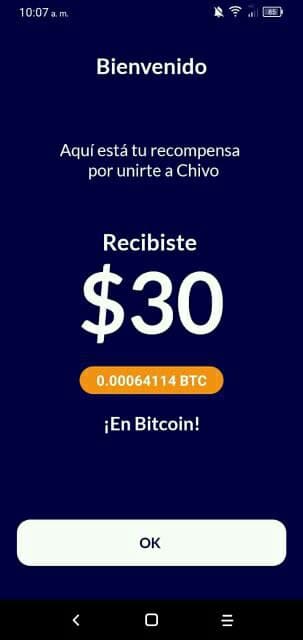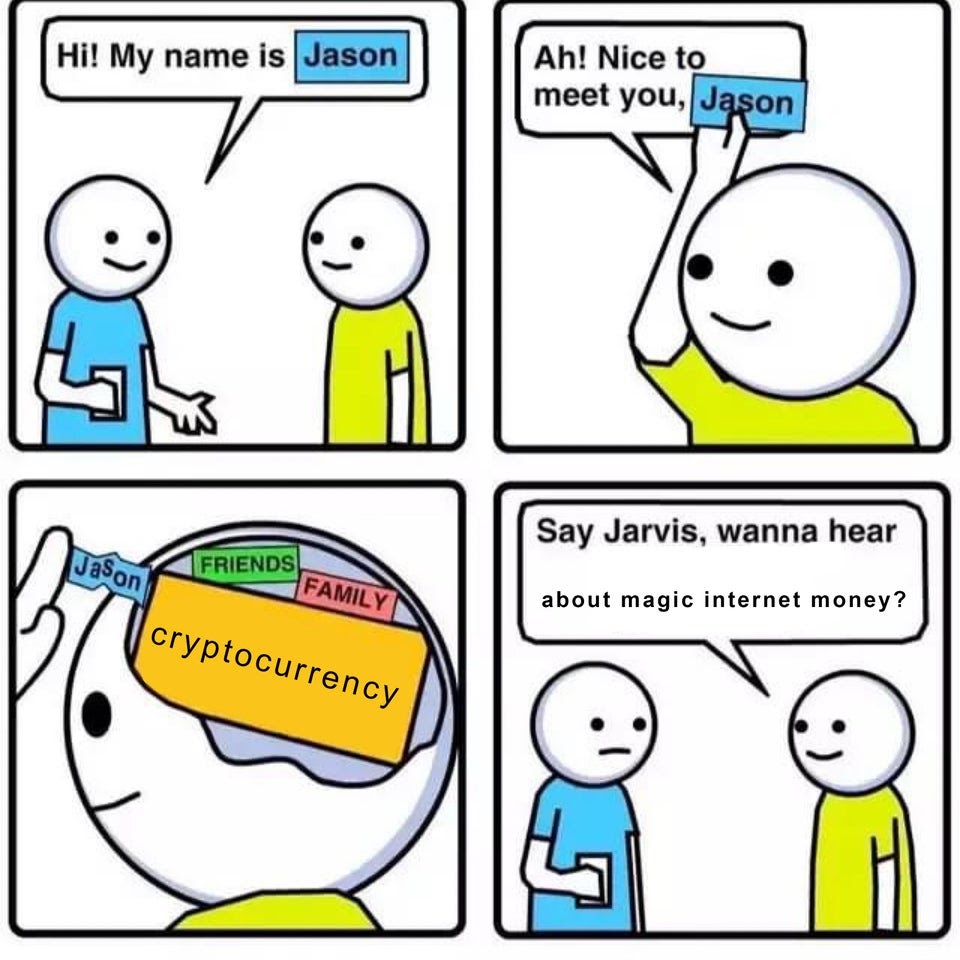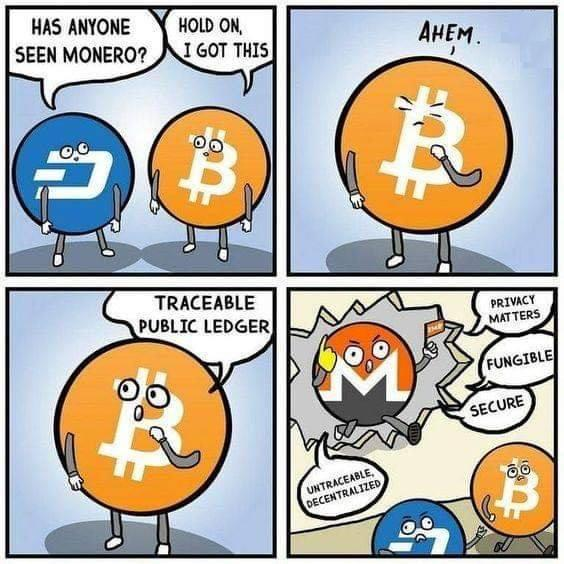Dear fellow LeoFinancers & Hivers,
As I explained in the first part of this « El Salvador’s BTCization » series, the way the State backed Lightning Network wallet (named « Chivo », that means « cool ! » or « dope ! ») has been logistically offered to all citizens here is globally satisfactory. The message is : « Using crypto in daily life is very straitghtforward and makes you save money ». Combined with a reassuring communication from the President himself, around the fact that paying with BTC will never be compulsory, nor will the dollar be pulled off as our other legal tenant currency, it allows most Salvadorans to enter this field in a smooth fashion.

Nevertheless, a couple of fundamental elements are missing in the State efforts, or should I more correctly write : are intentionally absent from the State’s perspective – meaning they’re not on its agenda for the mid-term deployement plans, and perhaps will never be.
By order of appearance, the factors I want to tackle here are :
- No education about the monetary and crypto fundamentals ;
- A State contract with « Zap, Inc » as a monopolistic and centralized economic actor ;
- « Chivo » profiled for its users as being just another banking sytem app
The result is that after 2 months of a Lightning Network based app being downloaded and used by more than half of the Salvadoran population, probably 95 % of these users are unaware of what’s Lightning Network, of what’s a crypto, and of what’s a currency.
That’s where come into the landcape some awareness raising and grassroots education initiatives I’ll present in a third article.
For now, let’s shed some light on the three Chivo’s « original sins ».
a) No education about the monetary and crypto fundamentals
This point is the angular one: nobody can prefer using a crypto over fiat currencies, or downloading a non custodial Lightning Network app over a custodial one, if he or she ignores what these terms refer to. From what we’ve seen here on the ground, the governement has financed the « Chivo » private company services and all its technical declinations (like dozens of « Chivo kiosks » and more than 200 «Chivo ATMs » throughout the country), but hasn’t dedicated a cent (or a sat, lol) to set up local workshops about what’s the difference between money (like BTC) and a currency like the USD, to print and distribute at least a leaflet for each Salvadoran family, or to elaborate a free MOOC on what are cryptos, their pros and cons (this latter option being the cheapest one).
And we’re 5 months after the Salvadoran Congress vote on adopting BTC as our national currency.

Beyond the fact that Nayib Bukele’s government currently counts on a confortable Congress majority, and knew that teaching the population on the decisive advantages of cryptos versus fiat wouldn’t be necessary for most of the citizens to accept and support the BTC/Chivo technology in their lives, my hypothesis goes beyond that. I tend to think that what’s at stake here is more than a State’s laziness to educate us: it’s the willingness and strategy to make BTC as invisible as possible, and to avoid that many Salvadorans understand they now have access to an empowering tool, not in the financial field only but as far as politics, social relations and self construction are concerned too.
b) « Zap Solutions Inc. » as a monopolistic and centralized economic actor
In spite of BTC being first and foremost appraised and adopted for its distributed architecture and its permissionless / censorship resistent self-regulation regime, in the case of El Salvador’s Lightning Network infrastructure, the story differs. First, the official LN implementation in our country was awarded directly by the Government to Zap Solutions Inc. / Strike, in the absence of any bidding process (a step that for sure would have fostered a widespread projects bloom and brainstorming in the cryptosphere).
As I don’t run myself yet an LN node, I’ve asked today to a very active Spanish-speaking node owner how many ones are visible as being connected from El Salvador (the visible ones are the ones not recurring to Tor as their standard privacy preserving method, and State supported nodes are more susceptible to have a visible IP - theoretically). His answer was : 3. Three nodes are currently managing on behalf of « Chivo » the transactions being potentially triggered by 4 million LN users.
The Chivo app doesn’t allow the user to choose a payment channel : instead of setting up a LN node in our cellphone, like Breeze, Phoenix and others do, it only acts as an interface to the company’s servers where all the required « BTC » are stored. In reality, they practice the same way as any legacy banking establishement or crypto centralized exchange, through fractional reserve : broadcasting posting lines from a closed accountability circuit, to keep track of the amounts sent through the app, but without enough liquidity to allow even a small percentage of Salvadorans to cash out simultaneously their BTC.
The fact that Chivo is the custody of all the satoshis that are registered in the app also creates a potential point of failure and vulnerability for the whole country’s monetary infrastructure, and illustrates the fundational crypto principle : « Not your keys, not your crypto ».
c) « Chivo » as a rebranded KYCd banking app
Unlike all other LN wallets, Strike / Chivo requires a picture of our DUI (ID document), a picture of ourselves, our DUI number and our phone number.
It’s relevant to stress the fact we don't need a bank account to unleash that app's potential, but what's really the point, if it asks us exactly the same privacy breaking data as a Finance 1.0 spying institution? In the era of « decentralized ID » solutions (like « Blockstack »’s one, that’s even running on BTC), it tends to generate much confusion.

My suggestion for the Chivo Team (or the Strike one) would be to release a Salvadoran specific users interface, offering the choice to register with or without a KYC, the second option becoming more and more appropriate in a context where almost everything may be purchased directly with sats in our local and national economies.
Conclusion : « Chivo is just a starting point »
Everyday I find more reasons and motivations to be enthusiastic by the all in involvement of my country into crypto adoption, and at the same time I also find more reasons to convert it into a Lightning Network informed, enlightened (hehe), non custodial & privacy protecting involvement.
That’s why we’ll deal in my next article with projects defending here these features.
Thanks to all Hivers for their past and future support ! You’re the daily demonstration that as blockchain and crypto-promoters, we do form a supportive international Community !
Posted Using LeoFinance Beta
You make very good points but it is still very early days and it takes time for people to understand crypto and all its opportunities and complications.
As long as you can use any Lightning Wallet or other Bitcoin wallet to pay for things then it is an open system and people will slowly realise they are free.
If you can transfer your Sats from Chivo to say Wallet of Satoshi or Breeze etc then its easy to move to a non-KYC environment.
If I can come to El Salvador and pay for everything I need to live in Sats using whatever wallet I want then I am free, even if others are still choosing to be less free due to ignorance.
Absolutely! In the groups I belong too we're still in the process of checking all the combinations (Chivo - Breeze, Breeze - Chivo, Chivo - Muun, etc.) and till now most transactions have been successful (less so in the case of Muun, I don't know why).
We're setting up an associative environment to empower other citizens in a horizontal fashion, "users to users", and showcase the benefits of adopting other wallets to unleash the full potential of Lightning Network.
We are waiting for other countries to join El Salvador to legalize BTC, because if the government like it or not, BTC is going to dominate the world.
Posted Using LeoFinance Beta
Exactly! BTC and some of the cryptos I use to name "autonomous" (most of them being generation 1 or generation 2 cryptos, the ones that didn't need an ICO or IEO to be created, lol) have the potential to be used first as second or third currency in many countries, and maybe later on to remove fiat currencies :-)
Although my prevision is that we'll first suffer some years of backlash, with more States forbidding cryptos and imposing their CBDCs.
Which country do you live in, @williamtboy ?
Thank you.I'm staying in Nigeria
Posted Using LeoFinance Beta